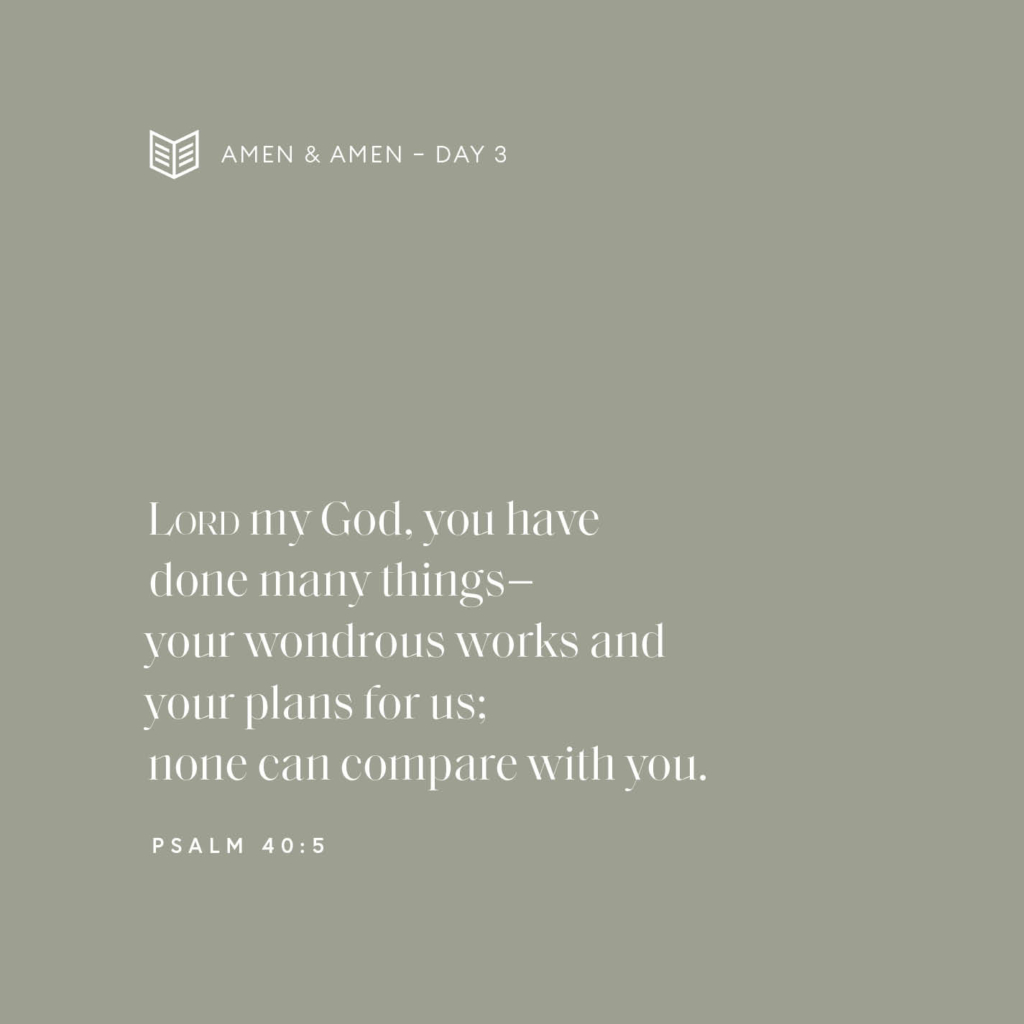Remember God’s Faithfulness
Open Your Bible
Psalm 27:1-14, Psalm 30:1-12, Psalm 40:1-17, Psalm 41:1-13
BY Melanie Rainer
Book I
The personal nature of the psalms in Book I demonstrates that all those who place their hope and trust in the Lord, aligning their lives with His kingdom, can rest in His deliverance.
My family has a little tradition we do each night, a daily check-in to let everyone know how we are feeling. It is a riff on the high-low exercise, with each person sharing their “high” and “low” for the day, but my daughters love to put a seasonal spin on the labels. Some nights we do “sunny and cloudy” or “snowy and icy” or “roses and thorns,” but the real gift is in sharing the inevitable tension between gladness and sadness that we all feel each day. I want to remind them (and us) that no day, week, month, or year is totally wonderful nor awful; rather, we can look each day at the little things that made us smile and remember the goodness of God, or frown as we feel the effects of living in a fallen, sinful world.
That exercise takes shape in today’s psalms, a collection written by David from early in the book that recounts the Lord’s incredible faithfulness while also expressing the reality of David’s tenuous life. Psalm 27, a psalm of lament, draws on themes in earlier psalms, desiring the protection and presence of God. “Though an army deploys against me, my heart will not be afraid” (Psalm 27:3) and “LORD, I will seek your face. Do not hide your face from me” (vv.8–9) show the dual purposes of this psalm.
Psalm 30, a psalm of thanksgiving, paints a picture of the cycle of despair and joy that defines David’s life. He uses the literary device of juxtaposition throughout this poem: “I cried to you for help, and you healed me” (Psalm 30:2), “his anger…his favor” (v.5), “weeping may stay overnight, but there is joy in the morning” (v.5), and so on. This constant comparison leads us to examine how life would feel without the faithfulness of God, whose steadfast love carries us through every circumstance.
Psalm 40 echoes some very similar language from Psalms 27 and 30, but takes place in a present trial. It says, “I am oppressed and needy, may the Lord think of me” (v.17). Rather than a lament or thanksgiving, this poem is a hybrid of the two. It speaks to a present danger but expresses gratitude for the past faithfulness of God when crying for help, as it does in the beginning in verse 5: “you have done many things—your wondrous works and your plans for us.”
Psalm 41 closes the first book of Psalms with a lament, prayer, and a beautiful benediction in verse 13. Again, we see the tension between hope and pain that marks so much of the Christian life. These psalms have given us a glimpse of the hopelessness of life without God and reminded us of His promises that would one day come true in Christ. Because of God’s faithfulness through all time—from everlasting to everlasting—we cling to a hope that is grounded in the kept promises of our steadfast God. And we look forward with hope to a resurrection life where there will no longer be a tension between joy and sorrow because our God will wipe every tear from our eyes (Revelation 21:4).

71 thoughts on "Remember God’s Faithfulness"
-
I’m so happy you were led here. I pray that you continue to grow in Christ through these readings and your commitment to know Him. God bless you.
-
As I am learning to understand the Bible, this specific devotion has opened my eyes quite a bit more. In understanding that through the good and bad, he is there to lean on.
-
❤️
-
Thank you Lord for the beautiful book of psalms❤️
-
❤️
-
Amen
-
Amen! The Psalms are just beautiful to read


Post Comments (71)